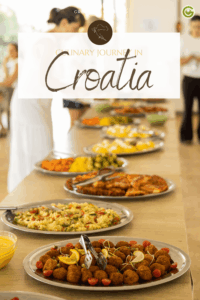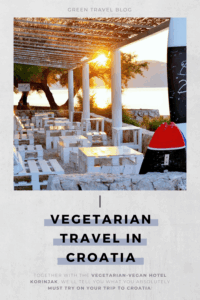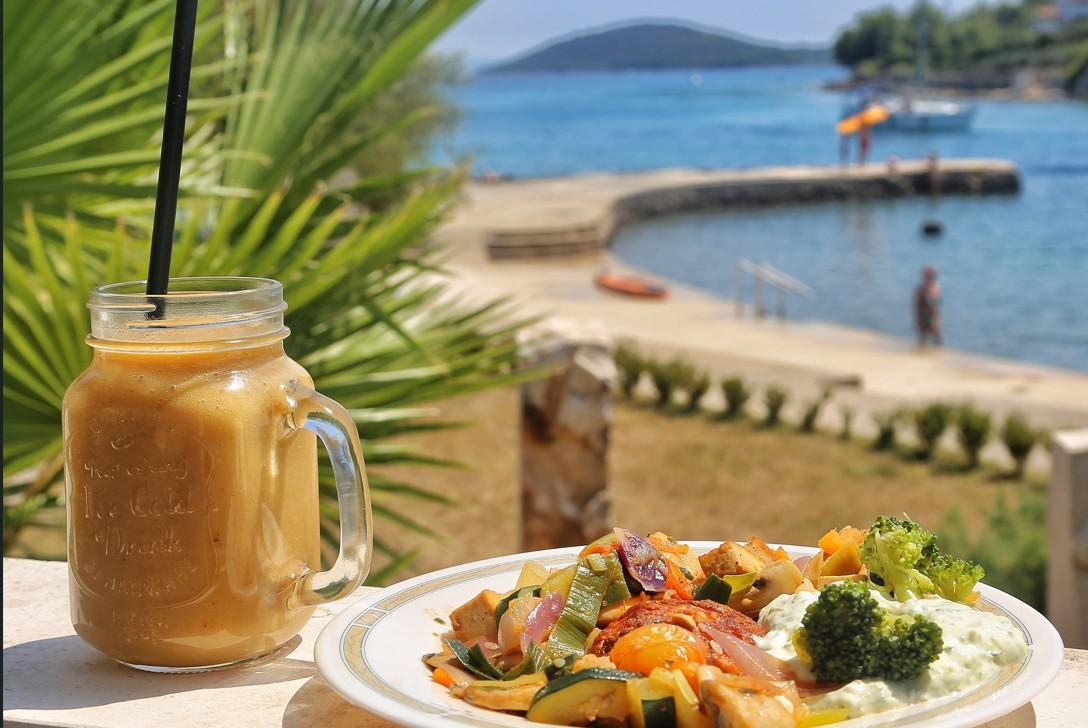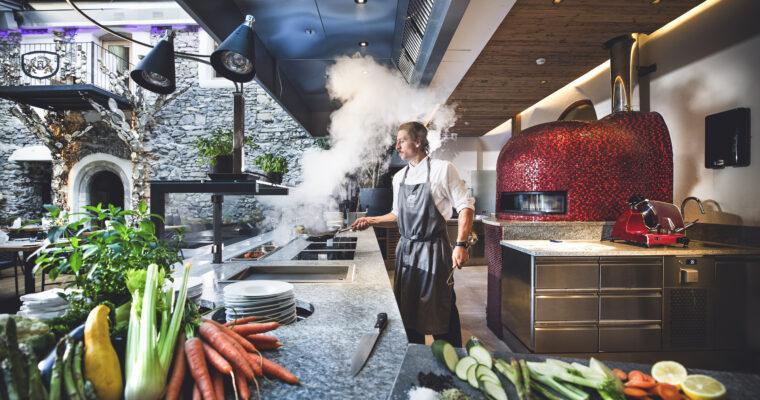Ćevapčići and Pljeskavica are by no means the only dishes that Croatian cuisine has to offer. Although the country is known for its meat-based cuisine, it also has a creative plant-based scene. Take the island of Iž and Hotel Korinjak, for example. In this article, we will take you on a culinary journey through Croatia, showcasing vegetarian and vegan delicacies.
This is our eighth part of the culinary Journey series, in which we explore a new destination every month.
“Croatian cuisine is a mosaic of Mediterranean, Central European, and Balkan influences shaped by centuries of cultural exchange and regional diversity. What truly sets it apart, however, is its deep connection to nature and the seasons.” – Hotel Korinjak

Typical ingredients in Croatian cuisine
Croatia is located on the Adriatic coast and comprises approximately 1,244 islands, in addition to the mainland. Only 49 of these islands are inhabited, including Iž, where around 600 people live in peaceful seclusion.
Croatian cuisine typically includes fresh vegetables such as tomatoes, peppers, zucchini, and Swiss chard; legumes such as lentils, chickpeas, and beans; olive oil; garlic; wild herbs such as rosemary, bay leaf, and oregano; and grains such as barley, cornmeal, and spelt. On the coast, sea salt, capers, and olives also play an important role.
“In a plant-based kitchen like ours, these ingredients are the foundation of every meal, bringing out deep, earthy flavors.” – Ana from Hotel Korinjak
People still relie on what grows locally, what the sea provided, and traditional preservation methods, Ana continues. From the simple cuisine of the Dalmatian coast to the hearty stews of the inland regions, each dish tells a story about its area of origin.
You should try these five Croatian classics (classic or, even better, plant-based):
These five dishes are absolute must-eats on any trip to Croatia. While they typically contain meat, cooks also use high-quality meat alternatives such as tofu, seitan, and legumes, always combining them with regional herbs and vegetables. Soparnik is the only traditionally vegetarian dish.
#1 Soparnik
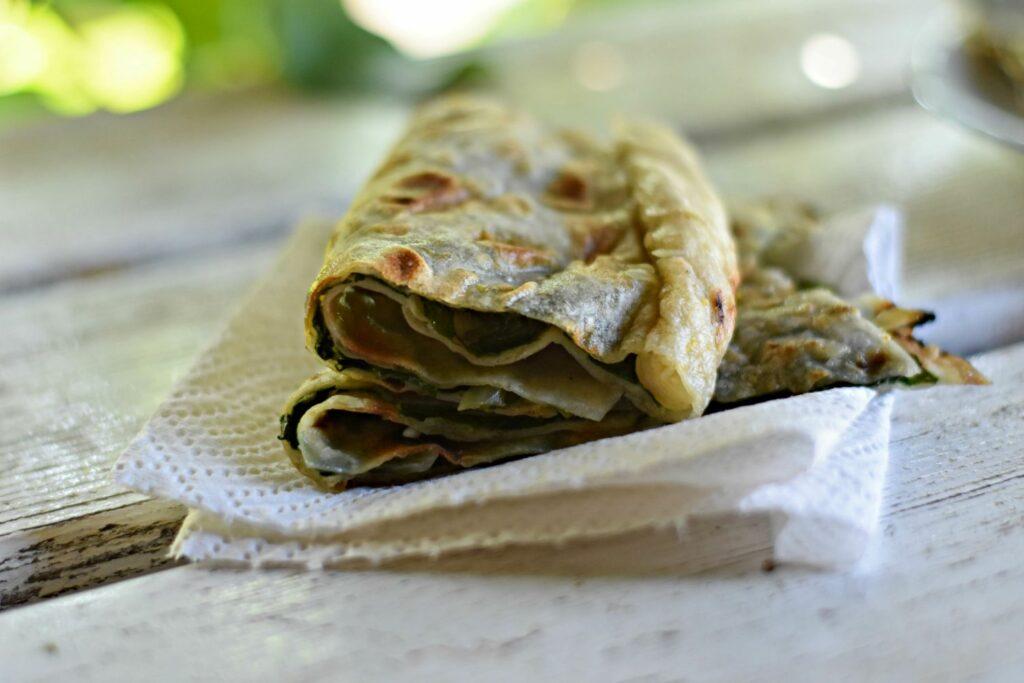
Cooks fill this traditional Dalmatian pie with Swiss chard, garlic, and olive oil, then bake it under a peka—an iron bell—to create a full, rustic flavor.
#2 Punjene Paprike (stuffed peppers)
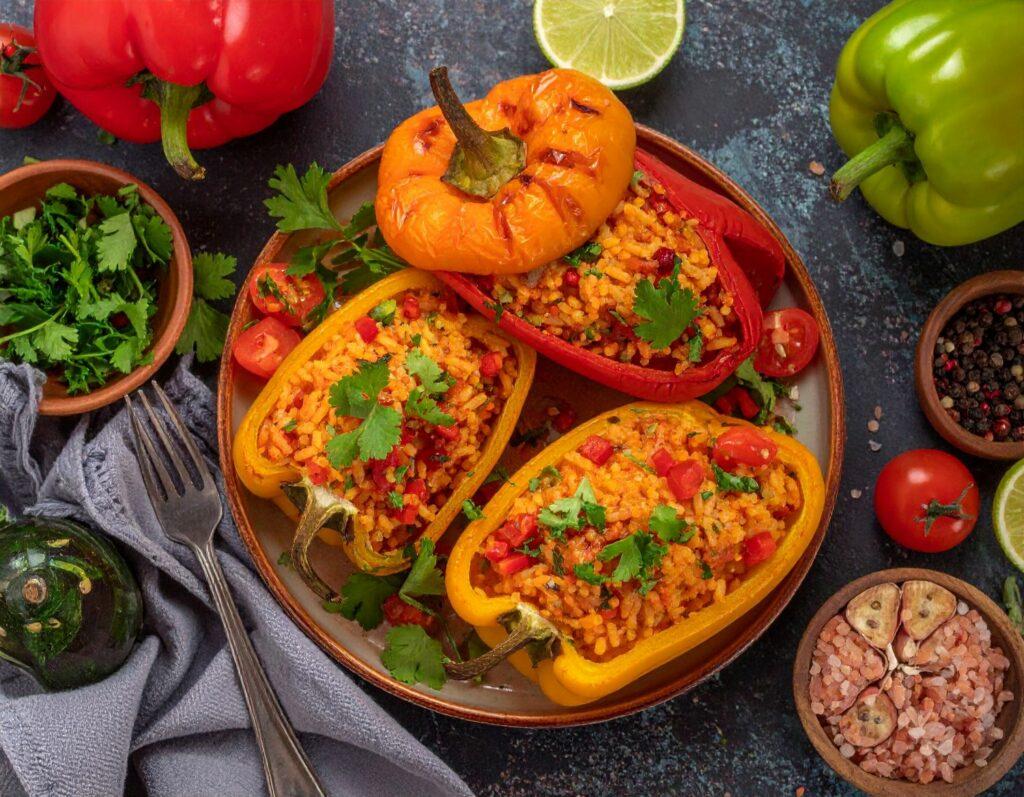
Bell peppers stuffed with a hearty mixture of rice, vegetables, and herbs in a tomato sauce.
#3 Olive tapenade
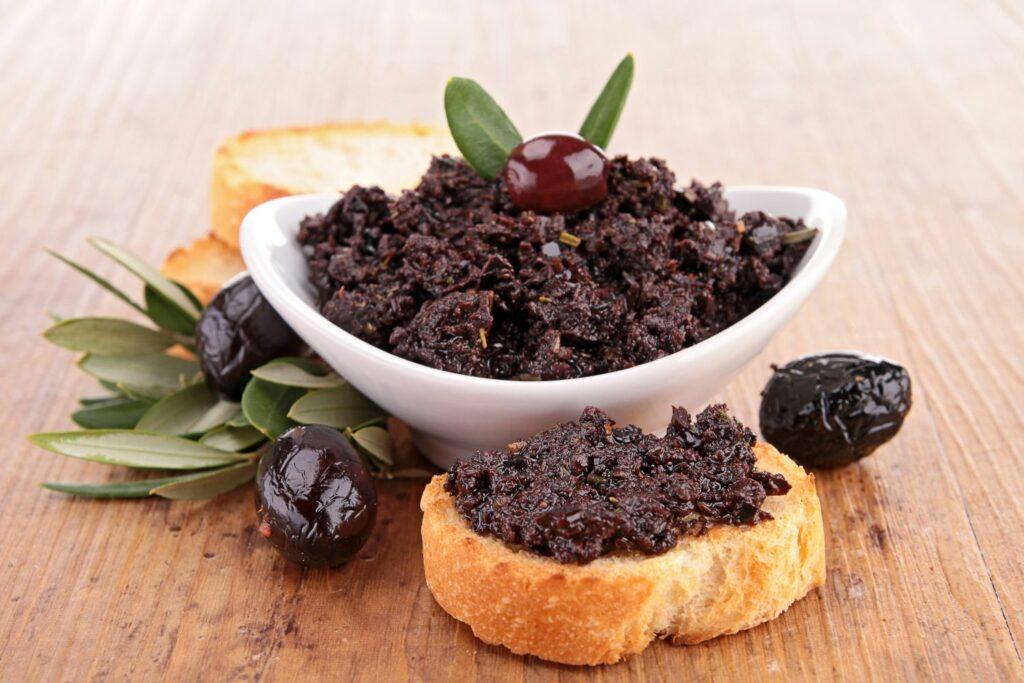
Tapenade is an olive paste that tastes great on bread as an appetizer or snack. It can also be served as a main course with grilled vegetables, such as zucchini, eggplant, and bell peppers.
#4 Barley and bean stew (ječam s grahom)
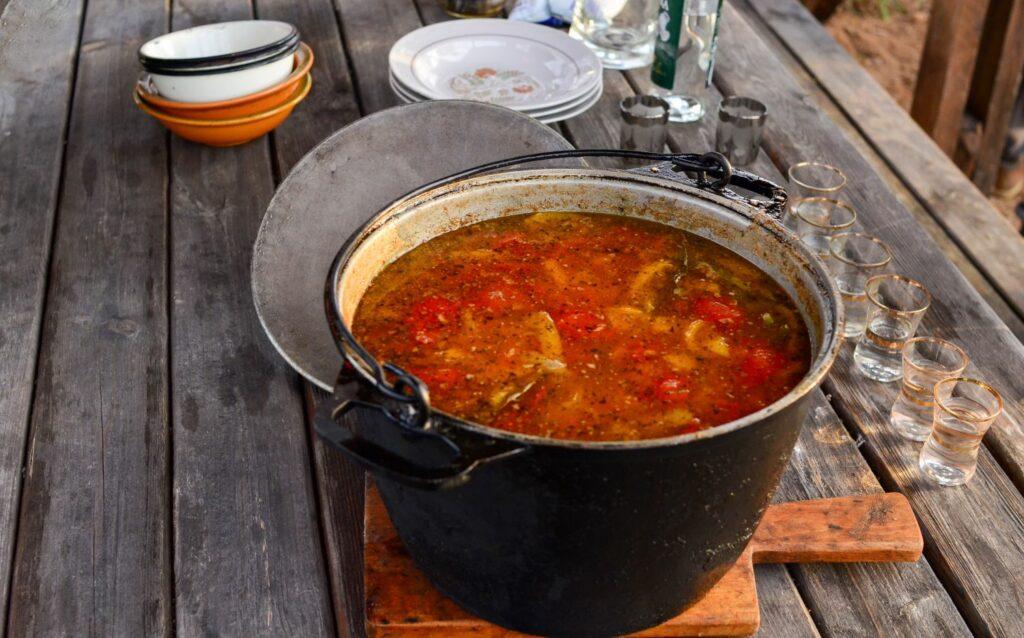
“‘A comforting dish from the heart of Croatia, slowly cooked with root vegetables and herbs,'” Ana raves about the stew. It’s made with white beans and barley cooked with onions and garlic in tomato sauce with paprika powder – typical for Croatia.
#5 Rožata vegan
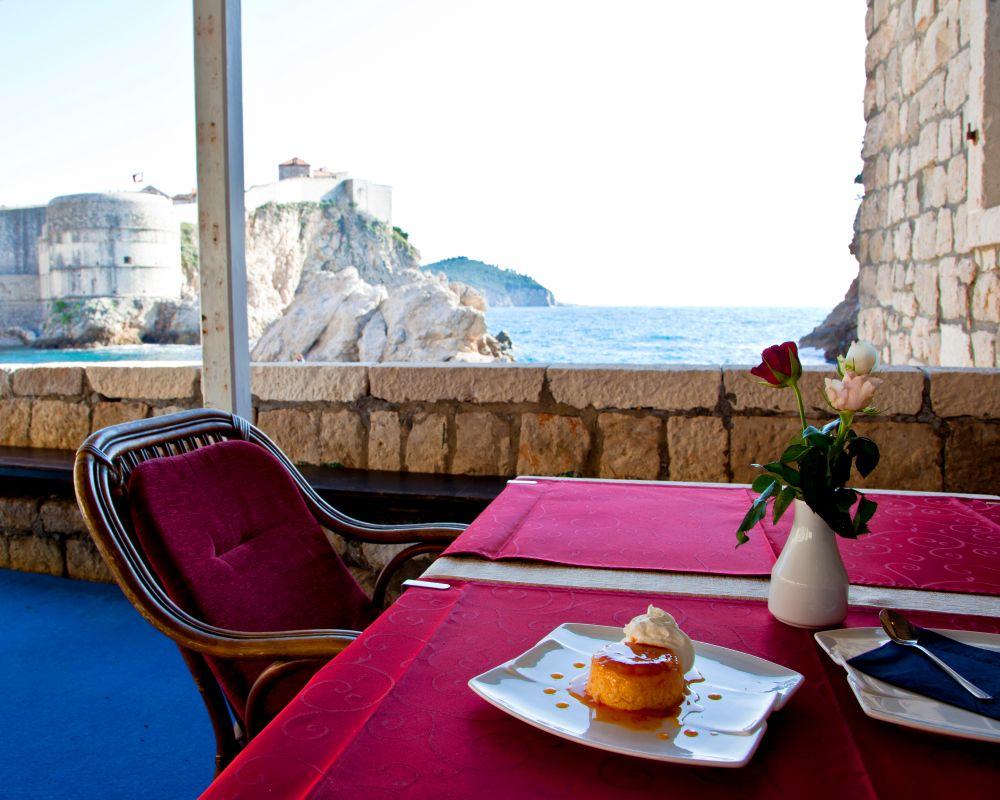
Rožata is a popular Dalmatian dessert pudding. Traditionally, it consists of milk, eggs, sugar, and rose liqueur, and it is served with caramel sauce. However, a vegan version is also available, made with coconut milk and agar-agar, offering a creamy treat without any animal products.
Four favorite vegan dishes from Hotel Korinjak
“Our guests particularly enjoy these four vegan specialties at Hotel Korinjak,” reports Ana.
#1 Vegan burger made from red lentils and served in a homemade bun.
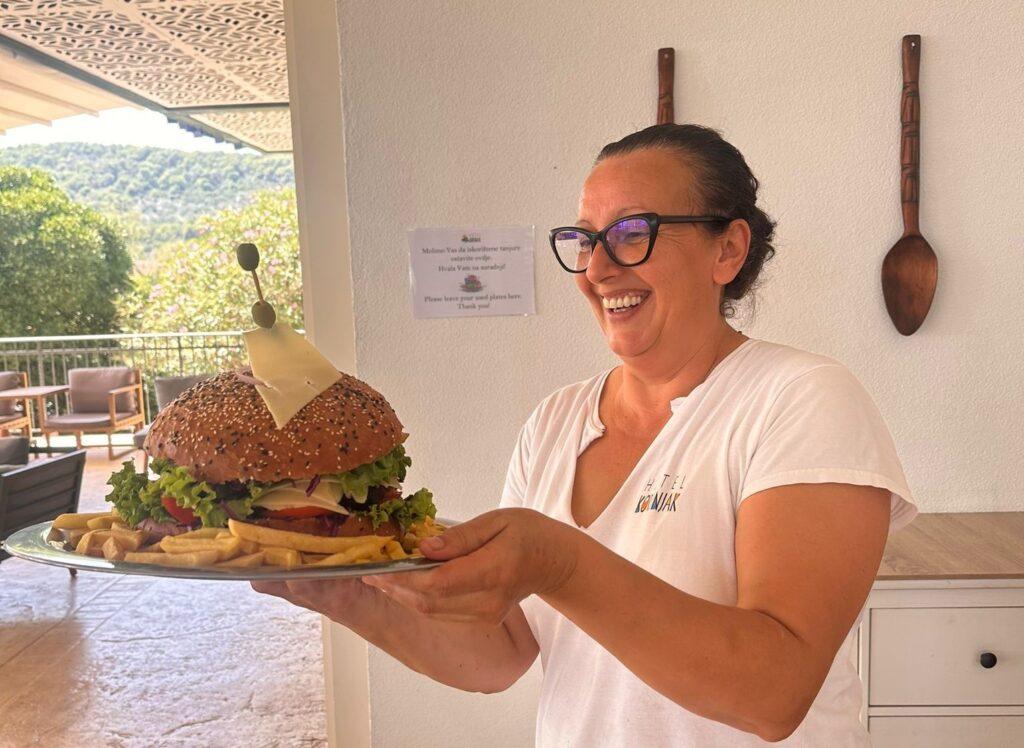
Hearty, high in protein, and full of flavor. It’s served with seasonal vegetables on the side.
#2 Vegan Pašticada
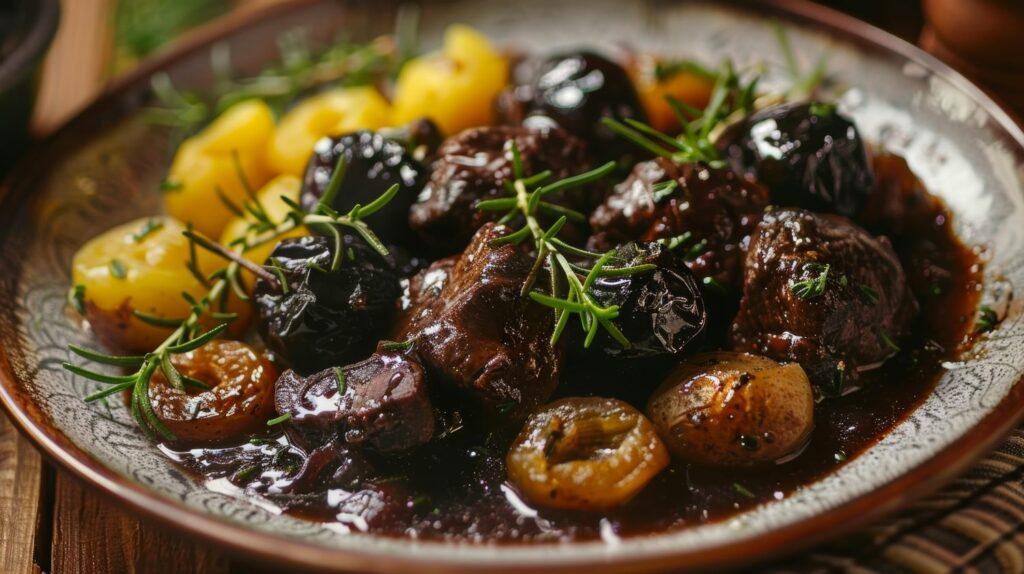
This is a vegetarian version of the classic Dalmatian stew, which is traditionally made with beef. Here, it is reinterpreted with seitan or tofu that has been marinated in wine and aromatic herbs. You can find the recipe here.
#3 Vegan sarma
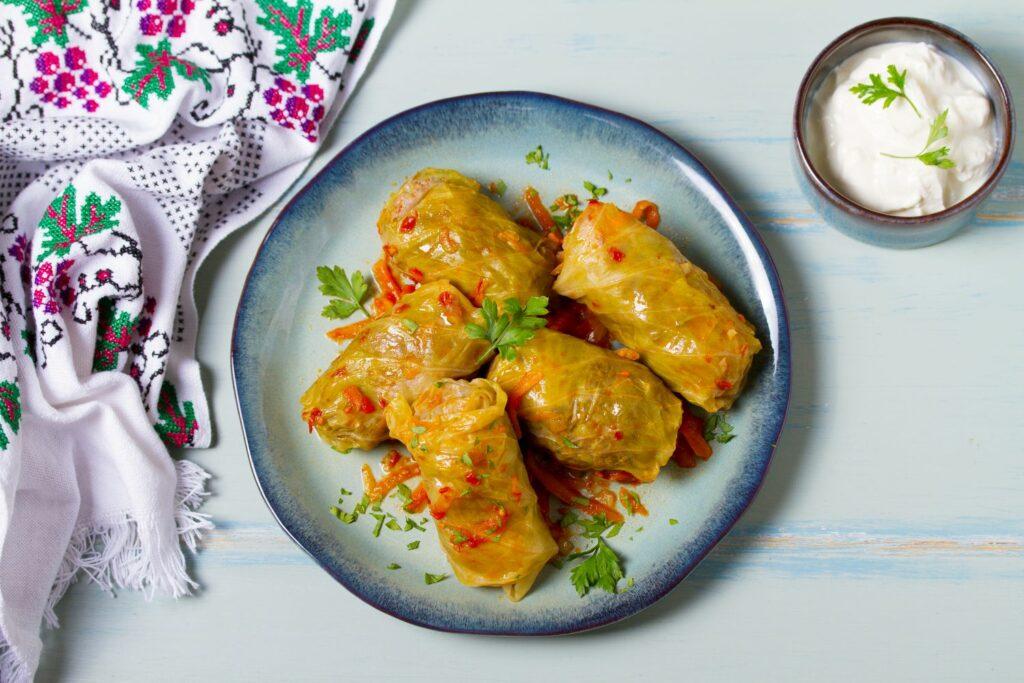
These cabbage rolls are filled with a hearty mixture of grains, legumes, and meat alternatives and are cooked in a rich tomato sauce.
#4 Vegan Poppy Seed and Walnut Strudel

A traditional dessert made from healthy, natural ingredients without eggs or dairy products.
The Vegetarian Scene in Croatia
Although Croatian cuisine is traditionally very meat-heavy, the country is also suitable for vegetarians and vegans. In recent years, the plant-based food scene has steadily grown. You can take part in vegan food tours in Zagreb and Split. Well-known vegan restaurants include Nishta in Zagreb and Dubrovnik and Art of Raw in Zadar. The latter specializes in creative vegan raw food cuisine.
The Hotel Korinjak promotes a sustainable and mindful lifestyle — offering yoga, sound massages, and close proximity to nature — as well as a meat- and egg-free cuisine.
“Our mission is to promote a lifestyle that is in harmony with nature, including conscious nutrition. Avoiding meat and eggs supports animal welfare, reduces environmental impact, and fosters better health and mental clarity.” – Ana from Hotel Korinjak
“Food should nourish not only the body, but also the mind. It should be light, wholesome, and full of vitality,” Ana sums up. We agree completely and hope we’ve inspired you to embark on a vegetarian-vegan culinary journey through Croatia.
Save this article for your next trip to Croatia on Pinterest.
